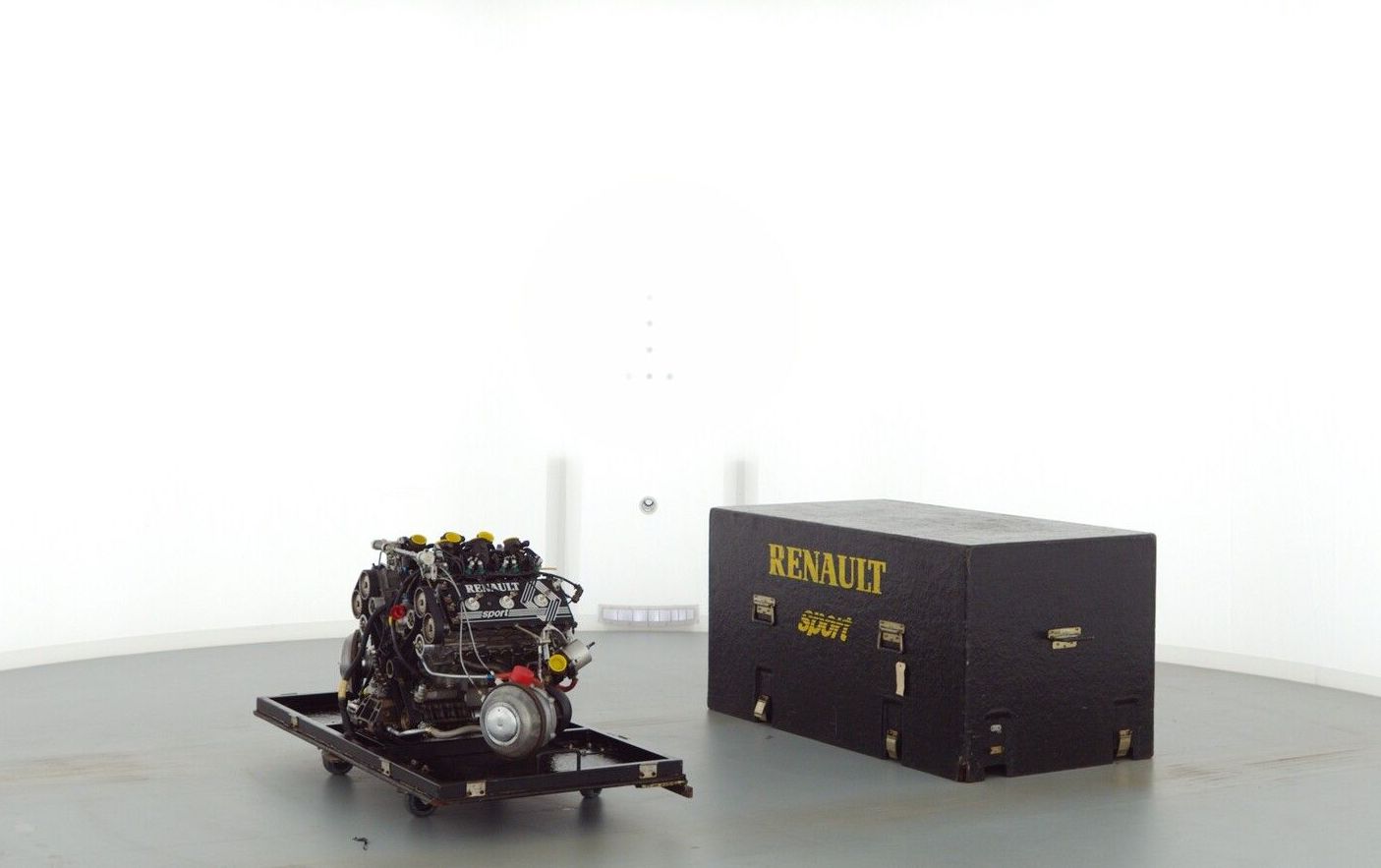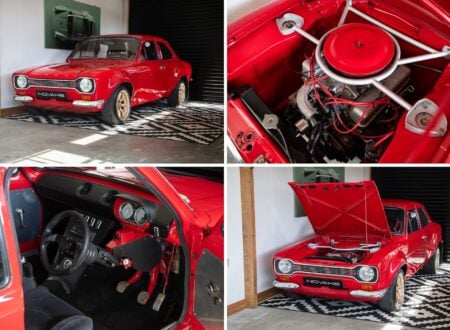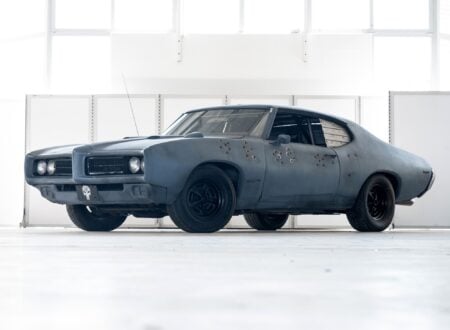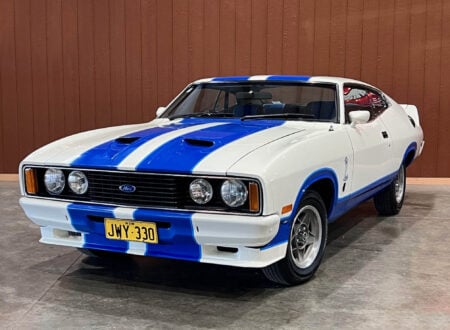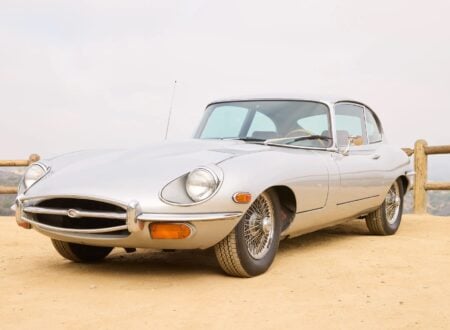This is a Renault EF-Type Formula 1 engine listed as being from 1985/1986, interestingly it remains with its original crate and it was never used for racing. That makes this an unusual opportunity to buy what is essentially a brand new NOS F1 engine from the turbo era.
Renault was the first to take advantage of the change in F1 regulations that allowed turbocharged engines, introducing a turbo V6 in 1977. Every other team in F1 followed suit over the next few years, a precursor to the world of modern F1 in which all cars are turbocharged small-capacity V6s.
Fast Facts – The Renault EF-Type Formula 1 Engine
- The Renault EF-Type Formula 1 engine is remembered now as a revolutionary engine for three distinct reasons. It was the first to take advantage of new regulations to switch to turbocharging in 1977, it was the first to use pneumatic valve springs, and it was a pioneer in the use of static ignition systems.
- These three technological innovations would slowly be adopted by all Formula 1 teams, with much success.
- The engine you see here is listed as being from 1985/1986, it comes with its original Renault Sport transportation crate, and the Renault Classic engineers have taken care to keep turning the engine regularly so that it didn’t seize.
- It’s now for sale with Artcurial at the Le Mans Classic auction due to be held on the 2nd of July, with a price guide of $62,500 – $104,000 USD.
The Renault EF-Type Engine
In its final stage of development the Renault EF-Type engine was said to be capable of over 1,200 bhp at 12,500 rpm in qualifying trim. Though at this state of tune the engine would only last four of five laps, a new engine at a lower level of tune was then fitted for use during the race.
Above Video: This episode from Autosport focusses on the history of the early turbocharged Renault engines, giving some fascinating additional history.
It’s been said that Renault F1 engineers have been criminally under-recognized for their contributions to the sport over the years. It was Renault that too the first gamble on introducing a new 1.5 liter turbocharged engine in 1977, every single over engine manufacturer followed within a few years.
The regulations had been changed back in 1966 to allow either a 3.0 liter naturally-aspirated engine or a 1.5 liter forced induction unit. Earlier in the history of grand prix racing there had been both supercharged and turbocharged cars of course, when regulations were less strict, but the 1977 Renault is now seen as the first “modern” use of turbocharging in F1.
Pneumatic Valve Springs
Further Renault innovations include the first use of pneumatic valve springs in F1, this was another development that would soon be copied by all Formula 1 teams, and all F1 teams currently racing still use the technology to this day.
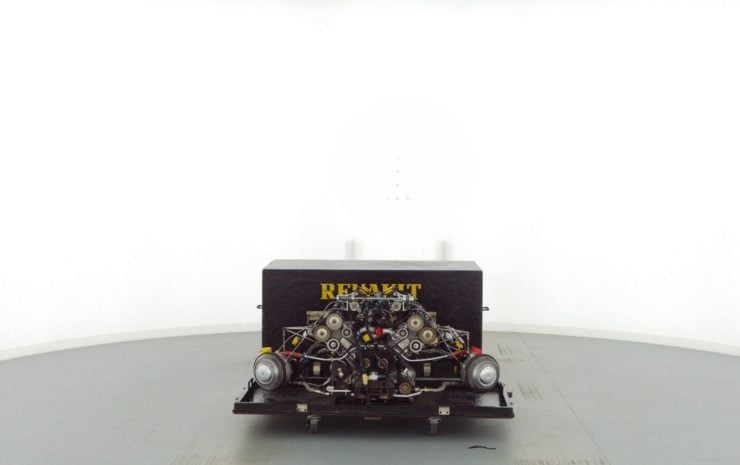

Pneumatic valve springs are typically used in conjunction with a more traditional camshaft, the cam opens the valves and the air pressure from the pneumatic system closes them – it doesn’t rely on valve springs as these tend to lose effectiveness at higher-RPMs and eventually fail with catastrophic consequences.
The Renault EF-Type engine was under constant development from its introduction in 1977 until it was replaced in 1986 with the Renault RS engine, when F1 returned to naturally-aspirated engines.
The turbo-era would be characterized by some of the most powerful engines that have ever raced in Formula 1, with some manufacturer’s power units producing over 1,500 bhp in qualifying trim. The turbo engines would return to F1 in 2014, now running as hybrid engines with battery packs and electric motors providing additional power and better fuel economy.
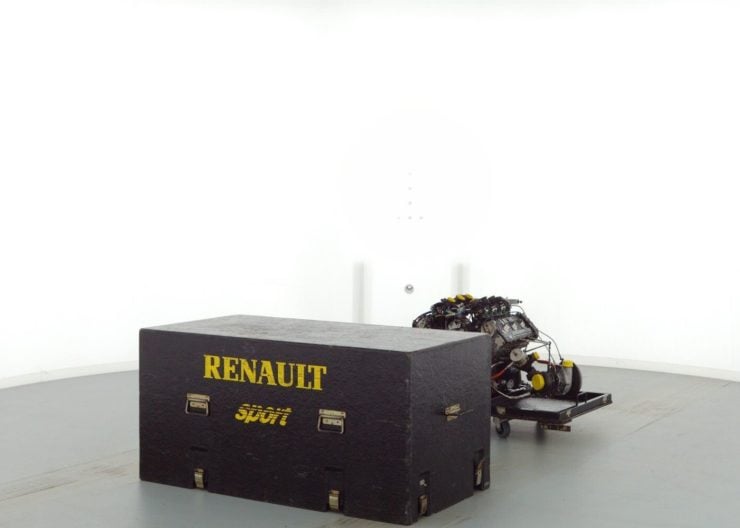

The Renault EF-Type Formula 1 Engine Shown Here
The engine you see here is an as-new Renault EF-Type Formula 1 engine from the 1985/1986 seasons, it was never fitted to a car or raced and the listing notes that it’s quite possibly in running condition.
The highest-horsepower versions of this engine were capable of over 1,200 bhp at 12,500 rpm in qualifying trim, significantly more than any current F1 engine.
If you’d like to read more about this engine or register to bid you can visit the listing here, it’s due to roll across the auction block on July 2nd at the Le Mans Classic sale held by Artcurial.
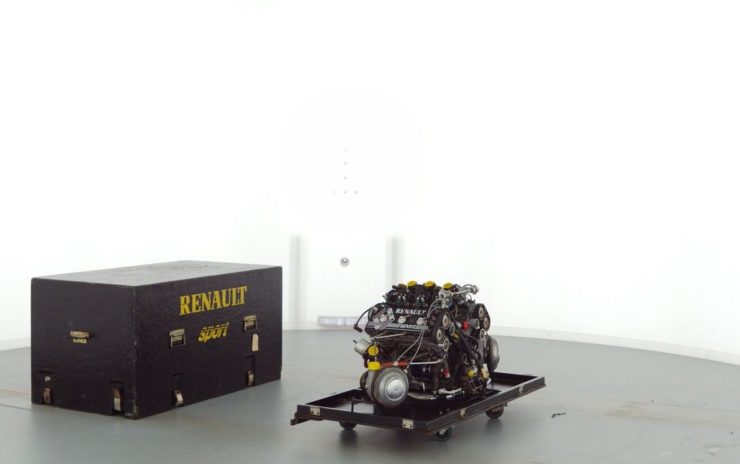
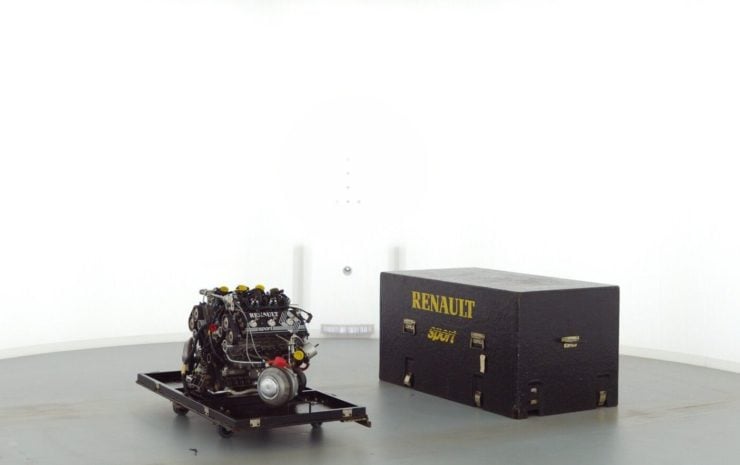
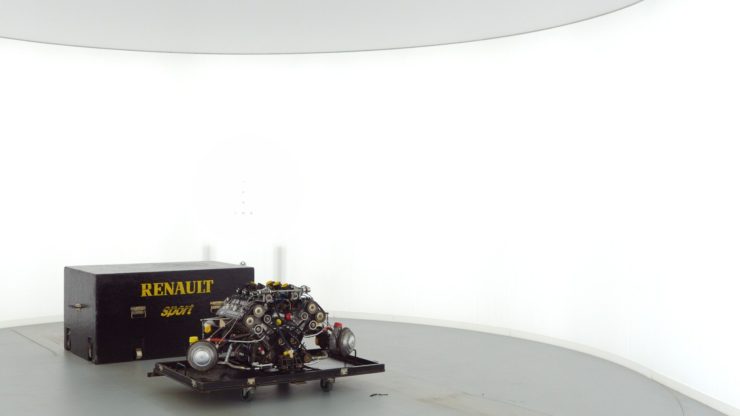
Images courtesy of Artcurial + Renault Communication

